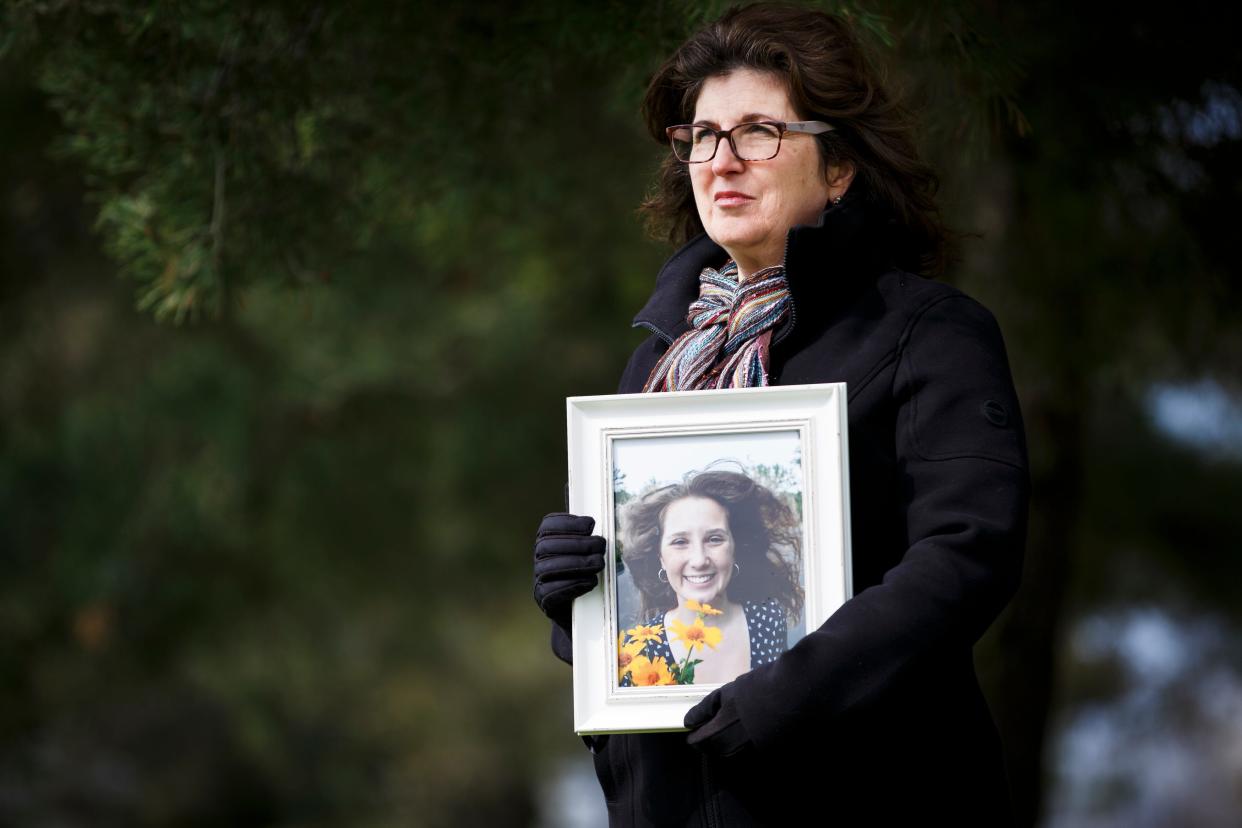Iowa Supreme Court rules against mother in suit over daughter's death investigation records

The Iowa Supreme Court says a Polk County judge erred in ordering a sheriff’s office to release investigative material related to a fatal accident.
The ruling stems from a lawsuit filed by Michelle Vaccaro in an attempt to obtain government records dealing with the Polk County Sheriff’s Office and its investigation into a 2019 motorcycle crash that claimed the life of her 17-year-old daughter, Jordan Leon.
Leon was the passenger on a motorcycle operated by Kaden Close, 17, who lost control of the bike in rural Polk County near Ankeny. Close suffered minor injuries, while Leon died at the scene. Close later pleaded guilty to failure to maintain control of a vehicle, a simple misdemeanor.
Previously: Mother sues Polk County, sheriff for records denied following daughter's death
Vaccaro had concerns about the extent of the sheriff’s office's investigation of the cause and manner of the crash. Specifically, she wanted to know why it did not investigate whether Close was impaired by drugs at the time of the accident and why certain facts about his driving record were initially overlooked.
As a result, she made several requests for access to all documents generated as part of the investigation. The sheriff, however, refused to grant Vaccaro access to all of the records, which prompted Vaccaro to sue the sheriff. The lawsuit did not claim the sheriff conducted an incomplete investigation but it accused him of violating Chapter 22 of the Code of Iowa, also known as the Iowa Open Records Law.
As part of the lawsuit, Vaccaro’s attorneys served the county with requests for discovery, essentially seeking access to the same records they had been denied as part of their Open Records Law request. The county refused, arguing that turning over the records in discovery as part of a lawsuit seeking disclosure of those same records would, in effect, decide the case in Vaccaro’s favor.
“Anyone denied access to public records,” the county argued, “would be entitled to those very confidential records with a simple discovery request.”
The county also argued that it had told Vaccaro she could obtain the records in question through a subpoena as part of a separate wrongful death claim against the motorcycle driver, rather than through an open-records lawsuit against the county. That wrongful death claim was settled prior to Polk County being subpoenaed for the records, the county pointed out.
Polk County District Court Judge Lawrence P. McLellan ordered the county to produce the records for his own review. After reviewing the documents, McLellan ruled the records should be produced subject to a protective order that would prevent them from being made public and shared with others.
Unless individuals can see the government documents they believe are being illegally withheld from disclosure, McLellan ruled, they will be “severely handicapped” in attempting to prove the Open Records Law was violated.
That ruling resulted in the county appealing the decision.
In reversing McLellan’s decision, the Iowa Supreme Court on Friday ruled that the district court judge had erred by relying on the rules of civil discovery to compel the county to produce “the very records at issue” in a lawsuit seeking enforcement of the Open Records Law.
“It makes little sense to turn over the criminal investigative reports in discovery in a Chapter 22 proceeding before applying the balancing test to adjudicate whether the records are exempt from disclosure,” the court ruled. “To do so would grant Vaccaro relief before determining whether she is entitled to relief.”
The court remanded the case, sending it back to district court, for McLellan to first determine whether the investigative records can be legally withheld from the public as confidential investigative reports before deciding what relief, if any, to grant Vaccaro.
The Supreme Court’s decision could effectively block Vaccaro from pursuing disclosure, unless the district court judge finds that the Open Records Law provision that allows police agencies to keep investigative material confidential doesn’t apply to the records that are being sought.
Find this story at Iowa Capital Dispatch, which is part of States Newsroom, a network of news bureaus supported by grants and a coalition of donors as a 501c(3) public charity. Iowa Capital Dispatch maintains editorial independence. Contact Editor Kathie Obradovich for questions: kobradovich@iowacapitaldispatch.com.
This article originally appeared on Des Moines Register: Top court: Iowa mom not entitled to records from daughter's death probe

